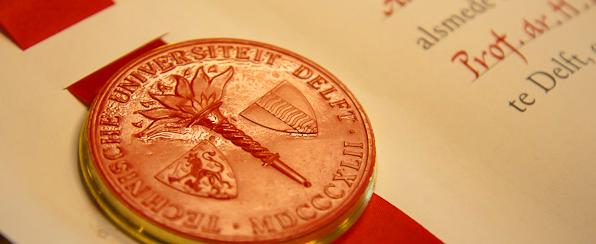Agenda
PhD Thesis Defence
- Wednesday, 3 December 2025
- 17:30-19:00
- Aula Senaatszaal
Model-Based Processing in Ultrasound Imaging: Sparse Reconstruction and Coded Excitation
Didem Doğan BaşkayaUltrasound is a widely used real-time imaging modality to diagnose patients. Ultrasound imaging has several modes of operation such as ultrafast Doppler which, due to the high frame-rates, is particularly suited to image blood flow inside bodily organs such as the brain. Despite its success, the ultrafast imaging technique has some downsides such as lower overall signal-to-noise ratio (SNR), especially in deeper regions due to the use of unfocussed transmissions. This thesis explores the use of advanced signal processing methods such as model-based image reconstruction to regain some of the loss in SNR.
The first part of the thesis focus on advanced model-based image reconstruction techniques, incorporating complex priors or statistical assumptions about the signal and noise instead of using a simple physical propagation model. Conventional ultrasound beamforming techniques, such as the delay-and-sum (DAS) beamformer, perform well in many clinical settings; however, they face challenges in applications requiring high structural detail or SNR, such as vascular imaging. This thesis explores deterministic and statistical model-based vascular image reconstruction techniques to improve SNR, resolution, and clarity of fine vascular details. The proposed techniques exploit the joint sparsity of the vasculature images at different time instants. These methods enhance the depiction of vascular structures while increasing SNR and suppressing background noise and artifacts.
A large part of the thesis focuses on the sparse Bayesian learning (SBL) techniques. Starting with classical SBL, this thesis introduces the application of block-sparsity-based SBL techniques, such as pattern-coupled sparse Bayesian learning with fixed-point iterations and correlated sparse Bayesian learning. Although some of the proposed techniques are not computationally efficient yet for real-time ultrasound imaging, they do provide a new contribution to signal processing and computational imaging fields.
The final chapter of the thesis focuses on improving the ultrasound transmission to enhance the SNR. An optimized coded excitation technique has been proposed as an alternative to standard coded excitation techniques. By keeping the computational complexity to a modest level, the codes are optimized to increase the SNR without a significant loss in the image resolution. The Cramér-Rao lower bound (CRB) minimization and a faster alternative Fisher information matrix (FIM) maximization have been proposed to optimize the codes. The optimized codes are tested on simulated data to demonstrate their potential for flow imaging.
To sum up, this thesis contributes to the ultrasound blood flow imaging area through solutions on image reconstruction algorithms and ultrasound transmissions to overcome current limitations and challenges. This thesis explores using advanced modelbased signal processing methods to improve image quality. Therefore, this work contributes new strategies that can inspire future research and clinical applications in vascular ultrasound imaging.
